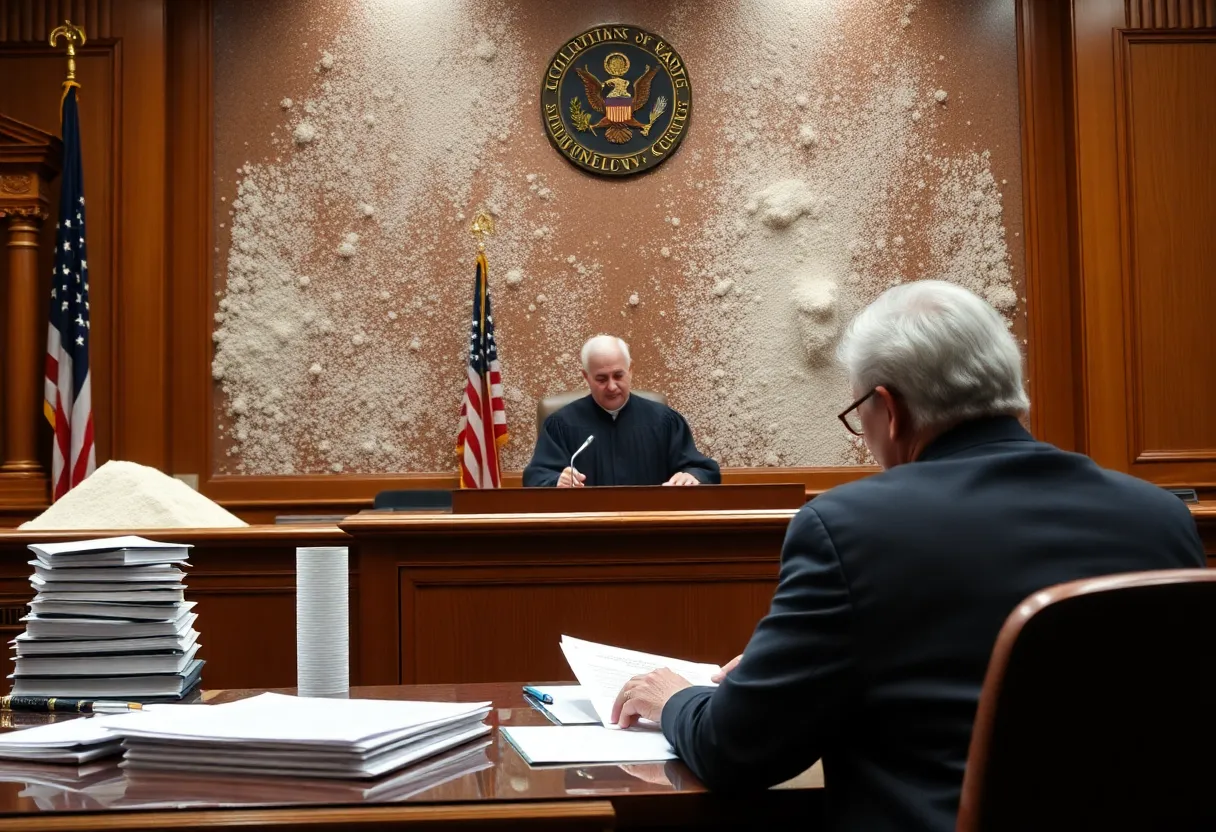News Summary
Presperse, a cosmetics supplier owned by Sumitomo Corporation, has received federal approval for its bankruptcy plan to address asbestos exposure claims. This plan includes a $50 million trust to settle current and future lawsuits related to its talc-based products, which have been linked to serious health risks such as mesothelioma. The company, facing over 275 lawsuits, has struggled financially, resulting in its Chapter 11 filing as it seeks to manage escalating legal costs and liabilities.
Presperse’s Bankruptcy Plan Approved Amid Asbestos Exposure Claims
In a significant development within the ongoing asbestos litigation saga, Presperse, a cosmetics supplier owned by the Tokyo-based Sumitomo Corporation, is set to resolve hundreds of injury claims tied to asbestos exposure after a federal judge greenlit a bankruptcy plan. This approval comes as a crucial lifeline for the company, which has been grappling with increasing financial pressures stemming from numerous lawsuits relating to its talc-based products.
$50 Million Trust Established for Claim Settlements
U.S. District Judge Robert Kirsch, alongside Judge Michael B. Kaplan of the U.S. Bankruptcy Court for the District of New Jersey, sanctioned a plan that includes the establishment of a $50 million trust designed to settle both current lawsuits and future claims. This pivotal measure aims to create a framework for compensating individuals who allege they have suffered serious health ramifications—including mesothelioma—as a result of using Presperse’s products.
The Asbestos Lawsuit Landscape
Since 2015, Presperse has faced a barrage of litigation related to asbestos exposure, particularly from its talc-based cosmetic offerings. The number of cases peaked dramatically in late 2021 and 2022, with over 275 lawsuits reportedly filed against the company. As the situation escalated, Presperse took the precautionary step of discontinuing the sale of its talc products in the summer of 2023, highlighting concerns about litigation costs and potential liabilities.
Financial Strain and Bankruptcy Filing
The company’s decision to file for Chapter 11 bankruptcy in September 2024 underscores the dire financial straits it found itself in, largely due to the mounting legal costs from the asbestos lawsuits. Financial documents reveal that Presperse recorded a staggering net loss of $40.6 million for the fiscal year ending in March 2024, with pre-tax losses reaching $53.3 million. By the close of that fiscal year, the company’s net assets were reported at a negative $14 million, with liabilities soaring to $59.2 million.
Sustained Legal Pressures from Asbestos Claims
This bankruptcy filing was not merely an act of management; it was a necessity driven by the unrelenting legal pressures. The parent company, Sumitomo Corporation, has also been roped into this quagmire, incurring approximately $35 million in litigation costs during the fourth quarter alone. Sumitomo stepped up to contribute $49 million to the bankruptcy trust, alongside an additional $2 million loan to facilitate financing throughout the bankruptcy process, showcasing the corporate commitment to address the fallout from these lawsuits.
The Health Hazards Posed by Asbestos
Talc, a common ingredient in many cosmetic products, poses serious health risks when contaminated with asbestos, a known carcinogen. Exposure to asbestos fibers can precipitate severe diseases including mesothelioma, lung cancer, and asbestosis, often surfacing long after the initial contact. The surge in litigation surrounding asbestos-related claims has been staggering, with over 751 lawsuits filed in 2024, echoing the heightened public awareness and legal scrutiny regarding talc products.
Moving Towards Resolution
Under the court-approved plan, the trust established by Presperse marks a step towards ameliorating the existing litigation landscape and paving a pathway for compensation for those impacted. As the situation continues to develop, both Presperse and Sumitomo Corporation will likely face an uphill battle to regain stability amidst ongoing scrutiny and claims from affected consumers.
The unfortunate reality of this case serves as a stark reminder of the potentially dangerous implications associated with everyday consumer products, highlighting a pressing need for accountability and safety in the manufacturing process.



















